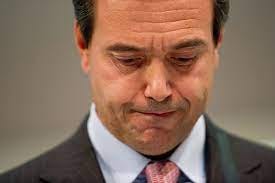It is commonly said that the tone of an institution is set at the top. When the firm’s leaders behave in an ethical and honest manner, consistently demonstrating personal and professional responsibility and integrity, this mode of righteous behavior tends to filter down to lower levels of the organization and over time becomes an established and valued part of corporate culture. But when this doesn’t happen consistently, or when senior leaders are not held responsible for their illicit or inappropriate behavior, years of hard work building a strong and sustainable corporate culture can be undone very quickly.
It is said that the principal assets of a bank are its people, its capital and its reputation. And it is the last of these—the firm’s reputation—that is often the most difficult to restore once lost or damaged. [I am cribbing here from the Goldman Sachs Business Principles, fully cognizant of the irony in doing so following the 1MDB scandal but also in recognition that GS takes these business principles seriously and has publicly acknowledged its mistakes in Malaysia.]
Credit Suisse is an institution that has wrestled for years with the consequences of a flawed corporate culture, most notably in its investment banking and risk management functions. For years now, Credit Suisse and its shareholders have suffered the pains of largely self-inflicted wounds arising directly out of the firm’s flawed risk management culture and costing the firm billions of dollars. I wrote about this most recently last August in regard to the Archegos affair, which cost Credit Suisse $5bn and was only one among several such events.
In response to the losses at Archegos and similar events at Greensill Capital, Credit Suisse announced in April of last year a long overdue house cleaning, including the replacement of several senior investment banking executives and the resignation of the chair of the supervisory board risk committee. This followed the previously announced appointment of a new supervisory board chair, Antonio Horta-Osorio, who made his name turning around the failed UK banking group Lloyds. Under the leadership of Mr. Horta-Osorio, Credit Suisse quickly launched and completed a major strategic review of its investment banking operations, the results of which were announced in November.
As far as I know, Mr. Horta-Osorio (now Sir Antonio in Britain) was doing an excellent job at Credit Suisse since joining the firm in April. But something seems to have gone terribly wrong in recent weeks, as a result of which Sir Antonio lost the confidence of the CS board culminating in his unexpected resignation this past weekend.
In announcing the resignation, Credit Suisse disclosed an investigation of Mr. Horta-Osorio commissioned by the board, which seems to have been triggered by recent press reports of his alleged violations of Swiss covid protocols and the possible misuse of corporate aircraft. Upon resigning, Mr Horta-Osorio acknowledged his mistakes, saying "I regret that a number of my personal actions have led to difficulties for the bank and compromised my ability to represent the bank internally and externally. I therefore believe that my resignation is in the interest of the bank and its stakeholders at this crucial time.”
All of this took place less than two years after the forced departure of the previous Credit Suisse CEO following an internal spying scandal and in the context of continued CS share price under-performance during Horta-Osorio’s short tenure, which likely did not improve the mood in the Credit Suisse board room or among its shareholders.
Notwithstanding this Credit Suisse-specific background, we should acknowledge that large companies do not generally fire their senior executives—or in this case force the resignation of their newly appointed board chairs—for personal and possibly unintended breaches of covid protocols or even the occasional questionable use of the corporate jet. Could something more be going on here? And if so, what is it?
I really have no idea, but I will be watching the news to see if something more nefarious comes to light. In the meantime, however, I am willing to accept that the forced resignation of Horta-Osorio is really what it seems to be, a strong message from the CS supervisory board (perhaps with a nudge from the Swiss government) that it expects all employees and board members to comply with all company policies, including importantly those relating to public health.
If this is really what has happened here, I think we should all be thankful. For far too long, too many companies have demanded of their staff strict compliance with corporate policies but have taken a more relaxed attitude to breaches by their top people. This has been true for years at Credit Suisse and other large banks as well is in the corporate world more generally. It is about time that supervisory boards and others in positions of responsibility took more seriously the importance of setting and enforcing the right ethical tone at the top.
Whatever the facts turn out to be in this particular case, Mr. Horta-Osorio is now gone, leaving Credit Suisse and his newly appointed successor—the third supervisory board chair in less than a year— with some big challenges to manage in the months and years to come. I can only wish them luck.
They will need it.
Links
Antonio Horta-Osorio Proposed for Credit Suisse Board Chair, December 1, 2020
Hora-Osorio Resigns as Credit Suisse Board Chair, January 17, 2022
Credit Suisse Press Release re Horta-Osorio, January 17, 2022



Ossorio had "behavioural" problems in Portugal and London - not so surprising.
Upon my initial read, it did strike me as unusual for an Executive to be removed because of covid protocol violations and misuse of a corporate jet. Not to marginalize those errors, but does the punishment fit the crime here? Or is there a missing piece to the puzzle? Maybe we don't have all the facts just yet. Time will tell...
Thank you for the post Professor!